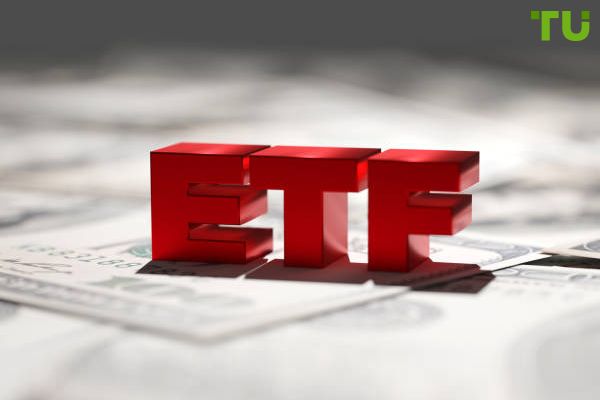Schwab study reveals growing interest in crypto ETFs among U.S. investors
 Schwab study reveals growing interest in crypto ETFs among U.S. investors
Schwab study reveals growing interest in crypto ETFs among U.S. investors
A recent study by Schwab Asset Management, titled “ETFs and Beyond 2024,” revealed that U.S. investors are increasingly interested in adding cryptocurrency exchange-traded funds (ETFs) to their portfolios.
The survey, which included 2,200 individual investors aged 25 to 75 with a minimum investment of $25,000, demonstrated a significant shift in demand for crypto ETFs, surpassing interest in traditional assets like bonds and alternative investments.
Data showed that 45% of respondents intend to invest in cryptocurrency through ETFs over the next year, up from 38% last year. This level of interest places crypto ETFs just behind U.S. stocks, with 55% of participants planning to invest, according to TU Crypto News. The study underscored investors’ drive to diversify their portfolios beyond stocks and bonds.
Millennials, in particular, are leading the charge in crypto investments. About 62% of millennial ETF investors plan to invest in cryptocurrency, surpassing the 48% who prefer U.S. stocks. By comparison, bonds and real assets like commodities attracted only 47% and 46% interest, respectively. In contrast, baby boomer investors remain hesitant, with only 15% planning to add crypto ETFs to their portfolios.
“Pretty stunning,” remarked Eric Balchunas, senior ETF analyst at Bloomberg Intelligence, commenting on the survey’s findings.
The results highlight the shifting preferences of younger investors and the growing acceptance of digital assets as a viable component of investment portfolios.
Schwab’s survey findings could signal growth for crypto-focused ETFs, which are often marketed as tools for diversifying traditional portfolios. While spot Bitcoin ETFs have performed strongly since their January launch, drawing about $19 billion in net inflows, spot Ether ETFs have struggled to gain traction. Data from Farside Investors shows that Ether-focused ETFs have experienced significant net outflows, mainly due to withdrawals from the established Grayscale Ethereum Trust, with losses exceeding $500 million.
This growing interest in crypto ETFs suggests that investors see value in digital assets within a regulated ETF structure, potentially boosting the asset class as regulatory clarity improves. The results indicate that demand for crypto ETFs could drive the development of new products, providing investors an alternative way to access the volatile but promising cryptocurrency market.
Market analysts expect that as interest in crypto ETFs rises, providers will expand offerings to meet the demand, positioning crypto ETFs as a mainstream investment option for U.S. investors seeking diversification in 2024 and beyond.
Read also: Fidelity data breach exposes personal information of over 77,000 clients













































































































































